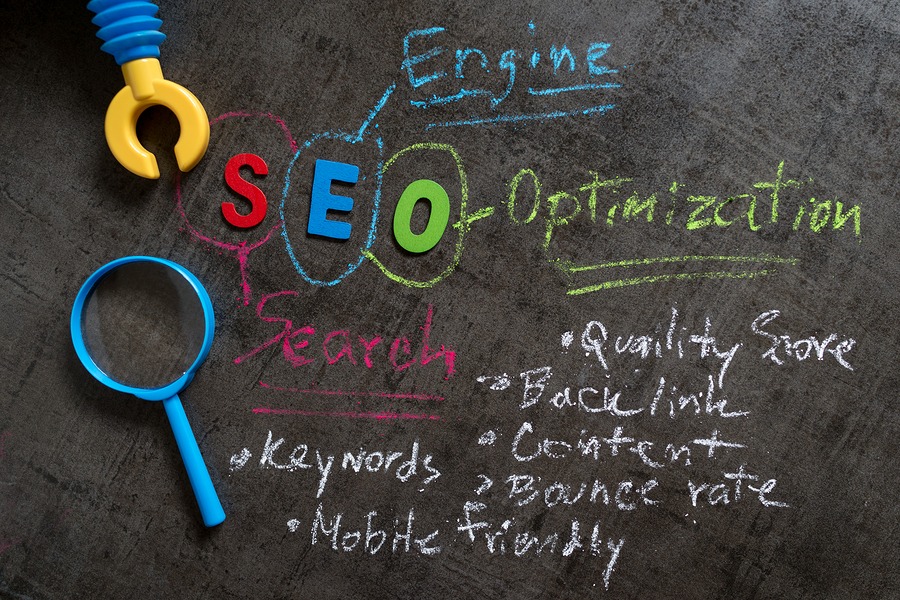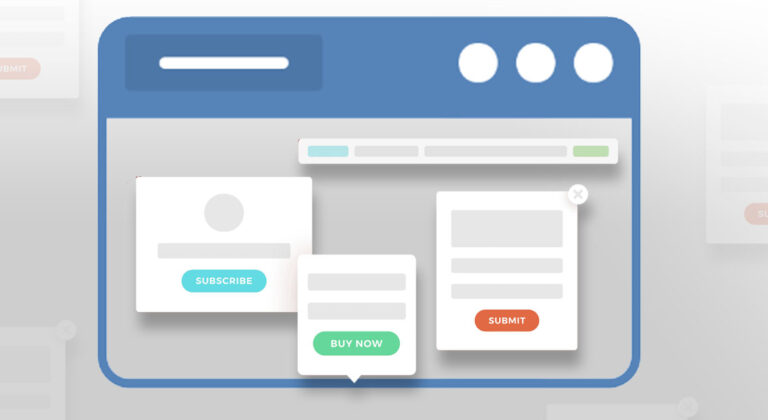How Long Does It Take to Build a Website? Everything You Need

I hope you enjoy this blog post. If you want Hello Bar to grow your leads, click here.
Author:
Ryan Bettencourt
Published
July 23, 2018

Building a website is one of the best things you can do for your business. But how long does it take to build a website? And what kind of resources do you need?
Maybe you’re starting a business and incorporating a company, and you want to hit the ground running, or perhaps you’ve been operating an offline business that deserves a place on the web. Whatever the case, websites are as diverse as the people who create them, so there’s no one-size-fits-all answer.
The good news is that you can adjust the time it takes to build a website based on the resources available to you and your standards. Plus, minimalist web design is “in” right now, so simplicity rules. Experts at Clickysoft, a leading Houston web design company, suggest focusing on a streamlined design and leveraging available tools and resources to expedite the development process while maintaining high-quality standards.
Let’s take a look at some of the factors involved in determining how long it will take to build your website. I also have some excellent resources in store for you, so be sure to read the whole article from beginning to end.
How Long Does it Take to Build an Ecommerce Website?

The problem with this question is that ecommerce websites can have one product or hundreds of products. The more products you sell, the longer it will take to build your website.
Consider a company like Amazon. It’s huge. Hundreds of thousands of product pages exist, and if you were to start building the site today, it would take an extremely long time.
But what if you only sell a few products? Or what if you’re using a shop-building IoT software development program?
According to ShopBlocks, you can build an ecommerce website in 30 minutes or fewer. That’s a pretty impressive claim, but it assumes you already have product photos, copy, and everything else ready to paste onto the site.
If you’re building an ecommerce website on a less customizable platform, it will take longer.
Writing for Entrepreneur, The Media Captain CEO Jason Parks recommends giving yourself 12 months to fully build and launch an ecommerce site.
How Long Does it Take to Build a Website Homepage?
Let’s say that you want a one-page website. Or perhaps you want a website homepage that can provide a “front door” for your business until you build the rest of it.
It’s as simple as acquiring a web host and domain, installing a WordPress theme, and typing copy in the home page. Realistically, you could set the whole thing up in just minutes.
Website builders like Divi make it even easier, especially if you want a slick, modern design. Whether you’re building an eCommerce site, a website for a marketing agency, or focused on web design for higher education, an easy-to-use website builder gets things done fast. Introduce yourself to the world, let people know when your business or website redesign will launch, and start working on the rest of the site.
How Long Does it Take to Redesign a Website?
Website redesigns can take just as long as initial designs if you’re starting from the ground up. You might have most of the tracking software and other extras in place, but you’ll need time to design visual elements and create relevant copy.
According to Acumium, website redesigns can take anywhere from two to 12 months. On the shorter end, you find your small, Mom-and-Pop type websites. Ecommerce sites take the longest, on average, and non-ecommerce websites should take between four and six months.
How Long Does it Take to Start Making Money With a Website?

Try not to get ahead of yourself. Websites can be cash-producing machines, but you need a few assets in place if you want to generate revenue:
- Content to attract traffic from search engines
- Social media presences to generate traffic from social
- Excellent products or services
- Compelling sales copy
- Lead generation strategies
You don’t make money until you offer an awesome product or service, generate traffic to your site, collect leads, and convert leads into customers. That takes time.
The good news, though, is that you can shorten the time frame through advertising, public relations, and other strategies that get your business in the public eye.
How Much Does it Cost to Hire Someone to Build a Website?
Experts suggest that the average cost of a small website hovers around $6,750. Regardless of your business’s size, expect to pay between $5,000 and $10,000, and if you want a truly turnkey solution with custom everything, the website development cost can be $20,000 or more.
That’s why a lot of people decide to design their own websites. It’s cheaper, but the results aren’t always as attractive or intuitive.
What Are the Different Types of Website Building Techniques?

Dozens of options exist for anyone who wants to build a website. How long it takes will depend on the method.
You could get a hosted WordPress installation with a free WordPress theme up and running in just a couple hours. However, you’ll still need to add your own images and copy to the site.
You can also get a pre-designed theme through sites like SquareSpace, Wix and Pixpa. It won’t be as refined as a custom site, but many of the themes are extremely attractive.
Then you have your premium WordPress themes. You pay more for the design, but you generally get more customization options as well extra widgets and more. The Genesis Framework is one of the most popular options.
Finally, you can have a third party design a custom website on whatever platform you wish. WordPress is far and away the most popular choice, but other options exist in the marketplace.
6 Website Building Main Factors to Take Into Consideration:

How long does it take to build a website? It depends on several factors. Consider these questions before you set a desired completion date for your project.
1. Are You Building Your Website Yourself?
In some cases, building your own website allows you to work faster. This is especially true if you have graphic design and copywriting skills.
There are two primary drawbacks, though:
- You might never feel like it’s “done,” so you continue tweaking in perpetuity.
- Without experience, you’ll spend considerable time researching and studying.
It’s not easy to build a website, particularly if you don’t know HTML and CSS (never mind Javascript). Although, there are numerous HTML-based website and Bootstrap Dashboard templates and themes that will help you to build eCommerce websites quickly.
2. Are You Hiring a Third Party to Build Your Website?
Every web design firm has its own method of working, and the length of time they’ll spend on your site depends on the size of the firm, the firm’s current client load, and the degree of customization you request.
3. How Soon Can the Project Get Started?
Business owners often make the mistake of building a website before they really know what they want to sell. They just want to put something on the web — make it theirs.
This is problematic because you’re starting at the wrong end of the process. Figure out your business model, develop your product or service, then put it online.
If you know you want to work with Web Designer A, and that designer has a backlog, the project might not get started right away. Furthermore, a web designer will need to collect information from you: sites you like, your design aesthetic, the desired color palette, and more.
For those of you who wish to go it alone, you can get started whenever you want. Just make sure you’re ready to take your business “public.”
4. How Long Until the Website Is Ready for Review?
Working with a web designer or design firm might seem frustrating at times. You want to see a wireframe or mockup right away. You can’t wait to see what your design will look like when it’s done.
You need patience, though. Ask your designer for a firm deadline. That way, your expectations are clear in the beginning. If the designer says the project will take six months, you can put it out of your mind after you mark your calendar.
5. When Do You Need to Really Have the Website Launched and Running?
Be prepared to pay a premium if you need your website by a specific date — especially if that date is extremely close. Perhaps your initial designer fell through, but you’ve already issued press releases, so you need your website live STAT.
Most designers can accommodate rush orders, and they set their rates based on how quickly you need the design and how complex the design will be.
6. How Simple or Complicated Does Your Website Need to Be?
Speaking of simplicity and complexity, keep in mind that all websites have different functions. A complicated website might include numerous product descriptions, a custom tool, infographics, custom photography, and more.
The more complex your website, the longer it will take to finish. However, you’ll get a high-quality product in the end, which makes the wait worth it. If you need a highly complex website, however, I suggest hiring a professional web developer instead of trying to do it yourself. A single line of incorrect code can break your site and leave you stranded.
How Long Does it Take to Build a Simple or Basic Website?
Many businesses start with a clean, simple layout so they can begin blogging and showing off their products or services. There’s nothing wrong with this approach.
In fact, building a simple or basic website can take as little as a few days. You just have to install your theme, populate the important pages with content, and add any images you want. Start blogging so you can generate traffic. A free website maker can help simplify the process even further, providing easy-to-use templates and drag-and-drop tools for creating a professional-looking site in no time.
What Are Considered Basic or Simple Websites?
A simple or basic website typically has just a handful of pages in addition to a blog. There might be an about page, contact page, product or service page, and homepage. It’s easy enough to set those up with, for example, a WordPress installation. Additionally, integrating IoT development services into your website can enhance its functionality and user experience, offering a more interactive and efficient platform for your audience.
This is true whether you use a free or premium theme. I recommend premium because you’ll get higher quality and more security, but when you’re operating on a shoestring budget, you can always upgrade to a better theme later.
A Simple Blog Using a Simple Blog Theme
To use a simple blog theme, just get your domain and webhosting. Some hosts, such as Bluehost and Ultahost, offer one-click WordPress installs. You don’t have to go through the process of setting it up yourself.
From there, enter your WordPress installation, click on the Appearances tab, and search for or upload your theme. It should take less than one minute to install.
You can set up a static homepage with welcome content or use the homepage as your blog. You’re ready to go!
An Informational Website With Light Customization
When you want to provide lots of information, the real time you’ll spend is in writing the copy and customizing the site to fit your needs. Additionally, it will depend on whether you’re hiring a professional or doing it yourself.
For instance, you could hire a designer to customize your theme and a copywriter to prepare your content. The cost of those services will vary widely.
Alternatively, learn basic customization on your own and write your own content.That’s the fastest way to get your website up and running.
A Minimalist, Simple Woocommerce Ecommerce Website
Woocommerce is a WordPress plugin that turns your WordPress installation into an ecommerce store. It’s extremely easy to install from the Plugins tab on your WordPress install, and you can have it running in just a few minutes. Woocommerce also supports web hosting solutions, like WPMU DEV Hosting, which has time-saving features that simplify the process.
As with any other ecommerce store, however, you have to populate your pages. Engaging copy, attractive images, and other elements take time to create. Expect to spend at least one month if you have a short range of products to sell.
How Long Does it Take to Build Complex Websites?
More complex websites take more time, of course, because they involve more intricate details. Complexity might relate to several qualities, such as design functionality, navigation, number of pages, built-in support, and more.
As mentioned above, if you hire a professional to design a complex website, you’re looking at a time frame of between six months and one year. The process will likely involve a lot of back-and-forth communication between you and your designer.
How Long Does it Take to Write a Blog Post for Your Website to Generate Traffic?

Blog posts are among the most effective ways to attract traffic to your website. Without traffic, you have no leads, and without leads, you have no customers. It all starts with bringing people to your site and giving them a reason to stick around.
Long gone are the days when you could write 300-word posts full of basic information and use them to generate traffic from the search engines. Those types of articles simply don’t rank anymore.
You have to up the ante with long, in-depth posts that target specific consumers and answer specific questions. If you’re solving a problem for your audience or helping them reach a goal, you’re doing well in the content marketing department.
Building a blog with tons of posts can take years. You can speed up the process by hiring writers and outsourcing the work, or you can take your time and write everything yourself. Regardless, each post deserves special consideration.
For instance, what keywords are you targeting? How should the content be formatted? Where can you insert links to other articles or pages on your site?
A Simplistic Blog Post: <500 Words
As I said before, short blog posts don’t perform very well in search engines. They’re also often disappointing to readers.
Imagine that you’re searching for information on how to unclog a drain in your home. You need lengthy, step-by-step instructions because you’re not a plumber and you don’t want to mess up and cause more damage.
Even a skilled writer probably couldn’t create a comprehensive post on unclogging a drain in fewer than 500 words. Consequently, the reader leaves unsatisfied.
However, if you’re writing basic posts — such as definitions for a glossary — you can stick with shorter content. Depending on your writing skills, a post of 500 words or fewer might take between 30 minutes and two hours to complete.
A Well-Thought-Out Blog Post: 500-1,800 Words
Now we’re getting somewhere. Content that has between 500 and 1,800 words will perform considerably better than shorter posts. They also take longer to write.
A skilled copywriter who is familiar with the subject matter can write such a post in two or three hours. Other, less-experienced writers might need six hours or longer to complete the work.
Remember that writing isn’t the only consideration. You might insert images to engage the reader’s attention, links to add more depth to the content, and other elements. Fitting those into the copy takes time.
A High-Quality, Well-Structured, and SEO-Friendly Blog Post: >1,800 Words

You might notice that posts at Hello Bar tend to range between 2,500 and 6,000 words. Those are long blog posts, but they’re worth it.
We dig into the content as deeply as possible so you feel more confident about solving the problem you’re facing. If we kept this article to 500 words, for instance, we wouldn’t give you a comprehensive overview on how long it takes to build a website.
In this case, you need time to research the content, choose your keywords, write the content, optimize it for search, and publish it. The length of time necessary depends largely on your skill.
You might want to read other posts on the subject so you know what’s out there and how you can improve upon it. Plus, you may explore tools like Ubersuggest to learn what keywords are best for targeting. Expect to spend no fewer than five hours and no longer than eight hours on a post like this.
Want to Start Generating Leads for Your Business Using a Website? Test Hello Bar for Free Today!
Once you set up your website, you want to start email collection immediately. For that, you need Hello Bar.
Hello Bar allows you to create top bars, exit popups, and other assets so you can collect email addresses from visitors. Once you’ve optimized the lead capture process, you can start marketing to your email list.
It’s easier than you think.
Just log into your Hello Bar account and select your goal. Maybe you want to grow your email list, get more followers on Facebook, or promote a special offer. Whatever the case, you can then choose the type of Hello Bar you want to create.
Let’s say you’re collecting email addresses for your list and you’re promoting a lead magnet in exchange. Your top bar might look like this:
![]()
Every time someone visits your site, he or she will see that bar and have the opportunity to opt in. Since Hello Bar is GDPR compliant, you can collect email addresses from people all over the world.
Conclusion
How long does it take to build a website? As with just about everything in the marketing world, it depends.
Frustrating, right? But you can narrow down the timeline by figuring out what type of website you want, how complex you want it to be, and what kind of content you want to write.
A website can take anywhere from a few minutes to an entire year to be built in its entirety. You get to decide whether to build it yourself or hire a professional.
How long did it take to build your website?







